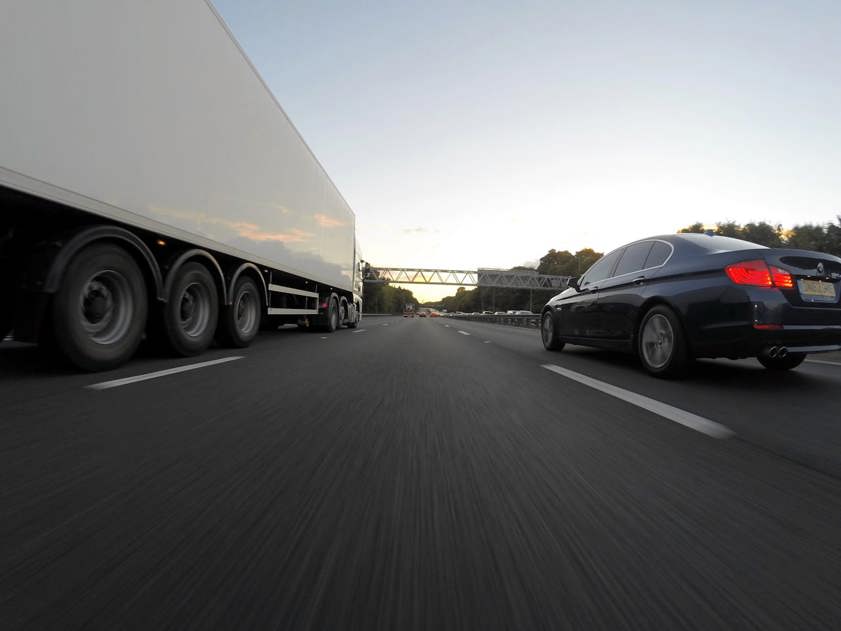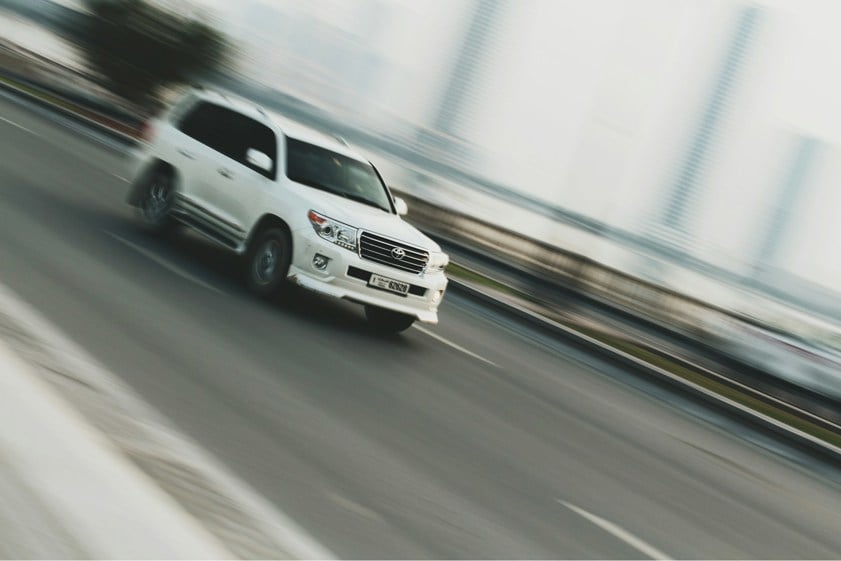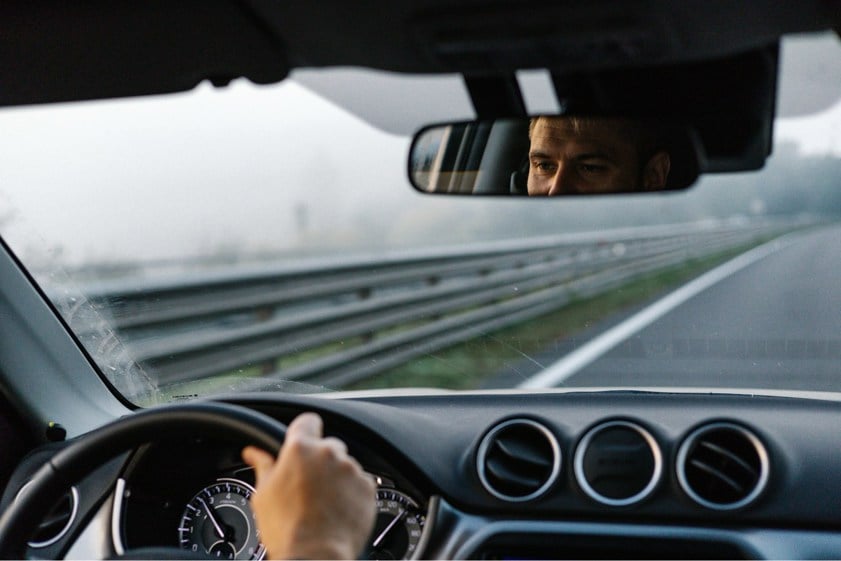
If you’ve driven on UK motorways, you will have seen or had the chance to undertake someone.
Undertaking is a bit of a grey area, and nobody seems to know whether it's illegal or not. However, as the drivers, we need answers. Is undertaking legal, or can it get you in trouble with the police?
In this blog, we’ll break down what undertaking is, whether it's allowed or not, and the safety tips for driving on the motorway. We discuss:

Undertaking is when you overtake a vehicle by passing on its left (in the UK, where we drive on the left). Normally, if you were to overtake a vehicle, you would pass on its right, so when it's switched, it can confuse motorists.
Undertaking can sometimes create confusion and safety risks on the road, as it can take a lot of drivers by surprise.
Looking for more advice on UK road law?
Check out our UK Road Law Guides for clear, practical advice to help you drive confidently and avoid penalties.
The short answer is no. You generally should not undertake someone on the motorway in most situations.
The Highway Code states: “Do not overtake unless you are sure it is safe and legal to do so. Overtake only on the right.
“Do not overtake on the left or move to a line on your left to overtake”.
However, it’s worth noting that undertaking isn’t specifically against the law, but in most cases, it could be ruled as dangerous driving if done recklessly or without good reason.
The punishment for careless driving is a minimum £100 fine and three points on your licence. For dangerous driving, it could result in nine points on your licence, a fine of up to £5,000, and a driving ban.
If you get issued one of these in your lease car, you need to consider that the ticket will be sent to the registered owner of the vehicle, which is not you. The finance provider will either pay the ticket for you and add the cost to your next payment or forward you the ticket.
Worried about fines in a lease car? Find out exactly how they’re handled in our guide: What Happens If I Get a Ticket in My Lease Car?
There are some situations where undertaking is allowed on UK motorways. Including:
- When adjacent lanes are moving at similar speeds - If you’re sitting in slow-moving traffic, vehicles often move at a similar speed across all lanes. If the cars in the right lane aren’t moving faster than those in the left, it’s okay to pass them without any issue.
- When exiting or joining a motorway - If you’re approaching an exit where it slips from the motorway, it is okay to pass cars on your right who aren’t merging. This isn’t classed as undertaking as you are following the exit or entrance.
Want a car that makes motorway driving safer?
Browse our latest saloon lease deals from premium manufacturers like BMW to Audi. Many saloons come equipped with advanced driver assistance systems (ADAS) to make every journey more stress-free.
Undertaking is a bit like when you don't say thank you after someone holds a door open for you; it’s not illegal, but it is frowned upon. Drivers in the middle lane of a motorway tend to be overtaken on their right, so if someone flies past them on their left, it might catch them off guard.
This can increase the risk of accidents, especially if the driver in the middle lane speeds up or tries to move into the left lane without checking their blind spots.
If you’re caught, expect fines, penalty points, and potentially higher insurance premiums. Repeated or reckless offences could even lead to losing your licence (although this is highly unlikely).
It's classed as careless driving or dangerous driving, which could result in up to a £5,000 fine and nine points on your license!
“Undertaking on a busy stretch of motorway is one of those behaviours that seems harmless but is treated very seriously. The risk far outweighs the reward, so it’s always better to stay patient.”


As stated above, try and avoid undertaking where possible. In regards to overtaking, there are a few top tips to ensure you do it in a safe manner:
The Highway Code states:
- Check your mirrors
- Take time to judge the speeds correctly.
- Make sure the lane you are joining is clear.
- Take a quick sideways glance into the blind spot area to ensure no vehicles are there.
- Check all your mirrors carefully and look out for motorcyclists. When it’s safe, signal in plenty of time and then move out.
- Ensure you don’t cut up the vehicle you have overtaken.
- Be careful at night and in poor visibility when it’s harder to judge speed and distance.
In summary, if you’re wondering whether you can undertake on a motorway, the answer is most likely no, unless you are in very slow moving traffic.
By understanding the rules and regulations of UK road law, you can make your journeys safer and more predictable for everyone on the road.
If you want a car that makes motorway driving safer and stress-free, the right vehicle can make all the difference.
From family cars with advanced safety tech, to comfortable saloons built for long-distance driving, or even electric cars with smart driver-assist features, we’ve got lease deals to suit every driver.
Originally posted: 29th October 2024
Last updated: 12th September 2025
Due to be reviewed: 12th September 2026

